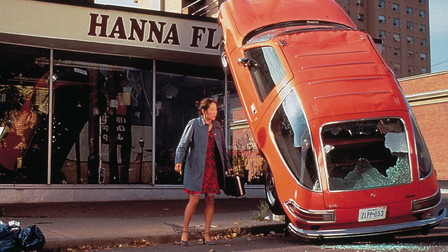If you don’t need a great job, the Peer Economy is for you. If it’s an elective weekend gig to make a few extra bucks, you’re okay. But if you took the bait and were drawn into such employment on a full-time basis, you’re probably living on the margins now, and you may be joined there by others whose jobs you unwittingly disrupted. From “I Am Not an Uber,” Annie Julia Wyman’s n+1 report about Los Angeles drivers employed by the ridesharing service:
A few men said they had made as much as $3,000 a week when they started working for Uber in 2012; some gave up other jobs in order to drive full-time. When Uber dropped fares drastically, supposedly in order to compete with Lyft (a rideshare app most successful on the West Coast and whose brand, at least, is friendlier, more transparent, and community-based), some drivers to whom I spoke said they found themselves earning as little as a few dollars an hour. One man texted me PDFs documenting his pay in October 2013 and his pay in October 2014. On the 2014 report, the driver’s total income is much lower, but you can’t see the number of trips he completed. This omission of the trip number column is intentional, he says: Uber wants to hide the fact that it is hurting its drivers. Meanwhile, company representatives maintain that drivers can earn $25.79 an hour and that drivers are provided with both weekly emails with policy updates and with 24-hour support. Uber’s stated intent is to “help drivers build their own small businesses” and to keep creating jobs. As of December 2014, Uber claims to have created fifty thousand of them, including jobs for military veterans, who drive without paying anything to the company at all.
The roughly twenty-eight men and two women at the meeting stressed that they all work full time, sometimes up to fifteen hours a day. They call part-time drivers “weekend warriors” and cite them as evidence that the sharing economy only works for people who already have the financial stability to treat driving as a kind of mildly lucrative hobby. One man took me aside and outlined his typical Monday, stressing that he couldn’t spare the money for more than one cup of coffee or the time for bathroom breaks. “I’m not a big thinker,” he said, pulling his knit cap down over his eyes, “I’m not a philosopher or a lawyer. But the country will be better when people like me are treated better.” He laughed and insisted that he, unlike many Americans, would pay his taxes. He then scrutinized my notebook to make sure I hadn’t written down his name, a strong hint that he—and probably other drivers at the meeting—was an undocumented worker.•
Tags: Annie Julia Wyman

